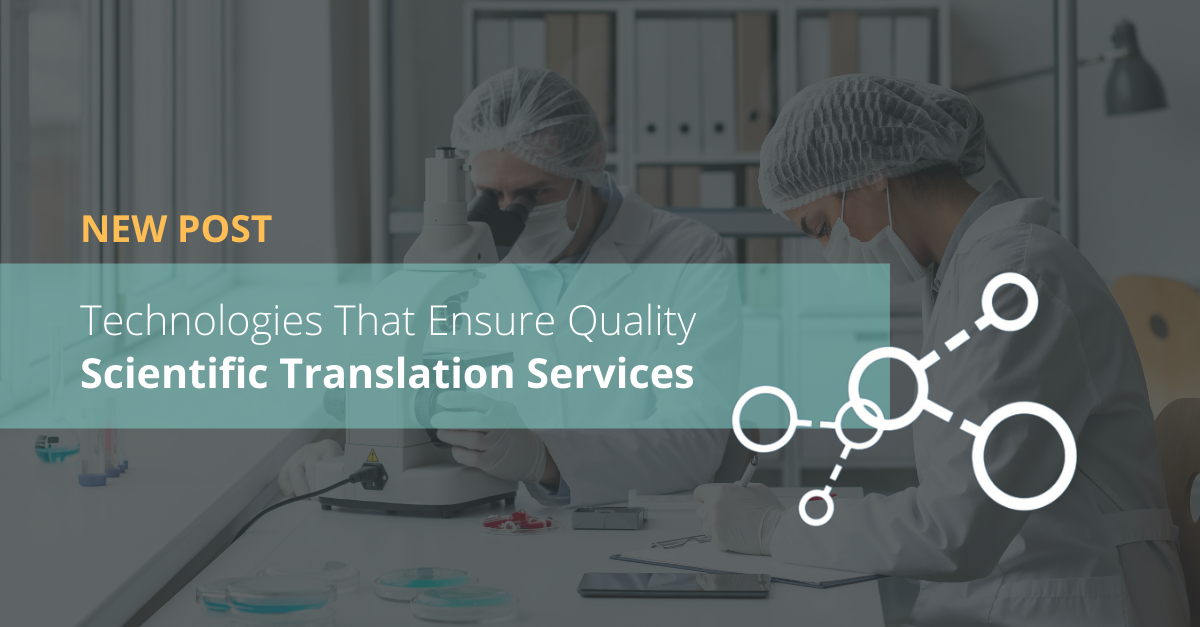Thanks to globalization, communication and information no longer have any borders. Therefore, beyond access to the information, it is essential that all users understand it.
The scientific sector is no exception. It is increasingly characterized by the constant exchange of knowledge, findings, research, etc., between people from all over the world. Consequently, this flow of information brings with it the need for truly specialized translations, which accurately convey the message.
For this reason, whether in the professional, academic or research field, scientific translation services must use the most appropriate technology and techniques to guarantee the quality of the result.
What differentiates a scientific translation from the rest?
Scientific texts have a specific, complex content with technical terminology. They are aimed at an audience with a certain level of specialization and, in general, are explanatory or descriptive in any of the areas of medicine, pharmacy, physics, chemistry, etc.
Because of these characteristics, the translation of scientific texts, more than any other, requires specialized knowledge of the subject in question, as well as knowledge and experience in the field of translation.
A scientific translation must be carried out by translators specialized in a specific field of science, or by scientists with great linguistic knowledge and skill, both in the language of the original text and in the target language.
This kind of translation must be performed with perfect accuracy. Any inappropriate term, wrong verb tense or even a misused preposition can completely change the fundamentals or meaning of a scientific result, test, analysis or study. Such inaccuracies would not only ruin the document, but could have serious consequences.
The scientific translator must be familiar with and fully master the technical terminology, academia and learned of the sciences in both languages, as well as their profound linguistic characteristics. Only in this way is it possible to guarantee the accuracy of the message within any area or industry.
Interesting content: How to find the perfect partner for technical translation?
Industries requiring scientific translation services
Among the industries most in demand for the translation of scientific texts are the pharmaceutical industry and the life science industries, such as medicine, biology and biochemistry.
Laboratories or pharmaceutical companies normally cross borders with their products. The role of scientific translation services is to help disseminate the respective clinical trials and to submit product characteristics for approval and registration in different countries.
There is also the health sector. The documents subject to scientific and technical translation in this industry are texts for clinical trials, approval documents, medical devices, posology, descriptions of surgical instruments, instructions for use, etc.
For these reasons, scientific-medical translation is also crucial for the proper development of science in research, as well as for providing adequate care to patients.
Technology and techniques that every scientific translation service must use
In the pharmaceutical and medical industry, as in any other scientific industry, it is essential to use scientific translation services that work with the following technology:
- Machine translation technology. This technology, which speeds up the translation process, uses artificial intelligence that is fed the interactions of the human team specialized in the translation of scientific texts.
- Translation memory technology. Translation memories are a kind of automated database for making comparisons between the sentence to be translated and previous reference translations. They serve to evaluate the accuracy of scientific translation and to provide terminological consistency.
Of course, this technology must always be supervised by linguists expertly trained in scientific and technical translation. These professionals are responsible for performing quality control techniques for aspects such as the following:
- Clear and unambiguous style. In addition, it must be a brief and precise style that accurately conveys the message.
- Reformulating syntactic structure. When necessary, the word order should be modified to make the translation natural and eliminate ambiguities.
- Preserving any symbols, formulas, numbers, etc., since they are indispensable for understanding the content.
Quality scientific translation services with Pangeanic
Any business in the scientific sector should check that an agency has the credentials to offer scientific and technical translation services before hiring it. They should also verify the references of the team of collaborating specialists.
At Pangeanic, we are aware of the importance of scientific and technical translations. Therefore, we are certified with the highest translation standards (ISO 13485, ISO 17100 and ISO 9001), use our own machine translation technology and translation memories, and work with expert medical and scientific translators.
We are able to offer a highly accurate and quality scientific translation service. Contact us and we will advise you on the translation service that best suits your needs.




